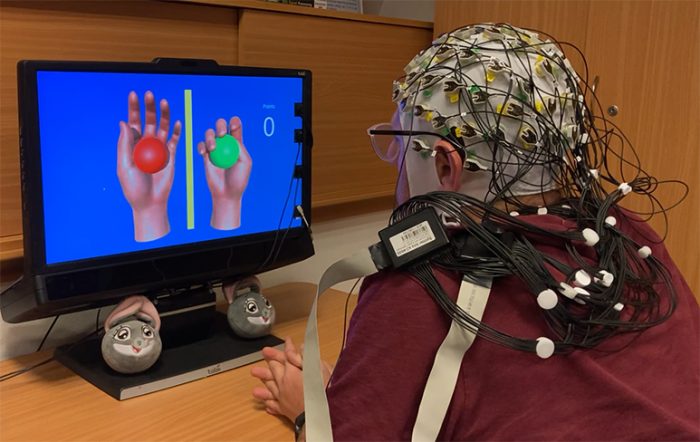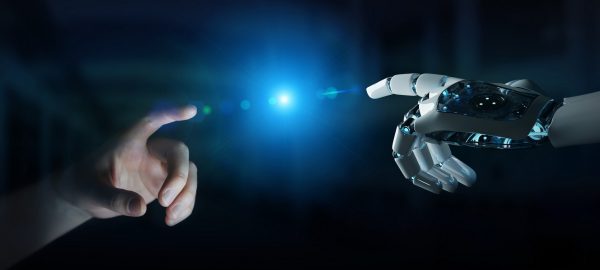
The dual goal of the Brain-Computer Interfaces for Rehabilitation Laboratory (BCIRL) is to investigate and decode neural signals both for developing accurate brain-computer interfaces and for understanding motor control in the brain.
Brain-Computer Interfaces (BCIs) establish direct communication pathways between the brain and external devices based on analyzing and decoding neural signals. There are two main techniques: (1) non-invasive BCIs, which rely on decoding Electroencephalogram (EEG) signals recorded from scalp electrodes, and (2) invasive BCIs, which rely on decoding neural activity recorded intra-cortically from invasive electrodes. In our laboratory we develop a novel paradigm for self-correcting EEG-based BCIs, and collaborate with other laboratories to either
(1) develop self-correcting invasive BCIs, or
(2) investigate EEG-markers for medical applications and rehabilitation.
The success of BCIs in interpreting human intentions depends on efficient
preprocessing and machine learning techniques. Due to poor signal to noise ratio, BCIs are prone to errors, so real-time error detection and correction is one of the challenging research areas.
The novel paradigm that we are developing is based on detecting and decoding Error-Related Potentials (ErrP), which are evoked in response to errors or conflicts between expected and actual feedback, including mistakes made by the BCI, execution errors (the controlled object does not behave as expected), outcome errors (failure to accomplish the task), cognitive errors and any unexpected feedback. We investigate error-related potentials, detect and classify them to correct BCIs and improve their accuracy and explore their applications for rehabilitation, motor training, and machine learning.






